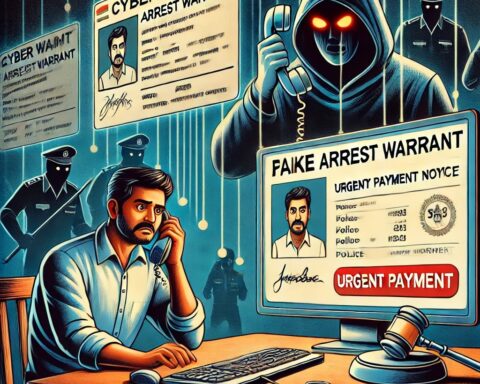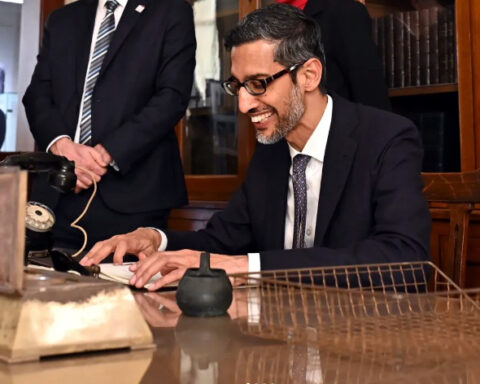New Delhi/ TNF
Cyber Safety – Rahul Mehra, a 35-year-old accountant in Mumbai, prided himself on being tech-savvy. He used online banking, shopped on e-commerce websites, and communicated with friends through various apps. Life was seamless, thanks to technology. However, one fateful day, Rahul received a message that tested his awareness and vigilance against cyber fraud.
The Message That Sparked Suspicion
Rahul’s phone buzzed with a notification: “Your bank account will be locked in 24 hours. Click here to verify your details.” It came from a number that looked remarkably similar to his bank’s official helpline. The message included a link that screamed urgency.
At first glance, Rahul was tempted to click the link. After all, he couldn’t risk losing access to his bank account. But something felt off. His mind wandered back to a cyber safety webinar he attended months ago at work. A golden rule from the session echoed: “Think before you click.”
How Rahul Outsmarted the Scam
Instead of panicking, Rahul decided to follow these basic safety practices to protect himself:
1. Verified the Source:
Rahul opened his banking app and checked for any alerts. Seeing none, he called the official customer care number listed on the bank’s website. The representative confirmed that the message was fake and advised him to ignore it.
2. Avoided Clicking on Links:
Rahul recalled that scammers often use fake links to steal personal information. He inspected the URL in the message and noticed it didn’t match the bank’s official website. By not clicking, he prevented potential malware from infiltrating his phone.
3. Enabled Two-Factor Authentication:
Rahul ensured that all his accounts—banking, email, and social media—were protected with two-factor authentication (2FA). This added an extra layer of security, requiring a one-time password (OTP) to verify any login attempt.
4. Kept Software Updated:
His phone and apps were up-to-date with the latest security patches. Rahul knew outdated software could leave him vulnerable to hackers.
5. Used Strong Passwords:
Rahul had a habit of using unique, complex passwords for each account. He used a password manager to store them securely and avoided reusing the same password across platforms.
A Lesson for His Family
Rahul’s quick thinking saved him, but it made him realize that others might not be as cautious. That evening, he sat his wife and 10-year-old son down for a “cyber safety talk.”
“Never share your passwords, OTPs, or PINs with anyone,” he explained. “Even if someone claims to be from the bank, they will never ask for those details.”
Rahul also taught his son to be careful while using the internet. “If you ever see a pop-up saying you’ve won a prize or get a friend request from a stranger, ignore it. Always ask me first.”
Spreading Awareness at Work
The next day, Rahul shared his experience with colleagues. Many admitted they had received similar messages but didn’t know how to identify a scam. Inspired, Rahul prepared a simple checklist to help others avoid cyber fraud:
1. Think Before You Click: Avoid clicking on unknown links in messages or emails.
2. Verify Requests: Always confirm urgent messages by contacting the organization directly.
3. Secure Your Devices: Use antivirus software and keep your devices updated.
4. Protect Personal Information: Never share sensitive details like passwords or OTPs.
5. Monitor Accounts: Regularly check bank statements and online activity for unauthorized transactions.
A Reminder to Stay Vigilant
Cyber fraudsters are always evolving, but with awareness and basic precautions, Rahul proved they can be outsmarted. His experience became a cautionary tale for friends and family.
“Cyber safety is like locking your house,” Rahul often says now. “Would you ever leave your front door open for anyone to walk in? Then why leave your online life unprotected?”
Through vigilance, Rahul safeguarded his finances and identity. His story serves as a reminder that staying informed and cautious can prevent cyber fraud from disrupting our lives.









